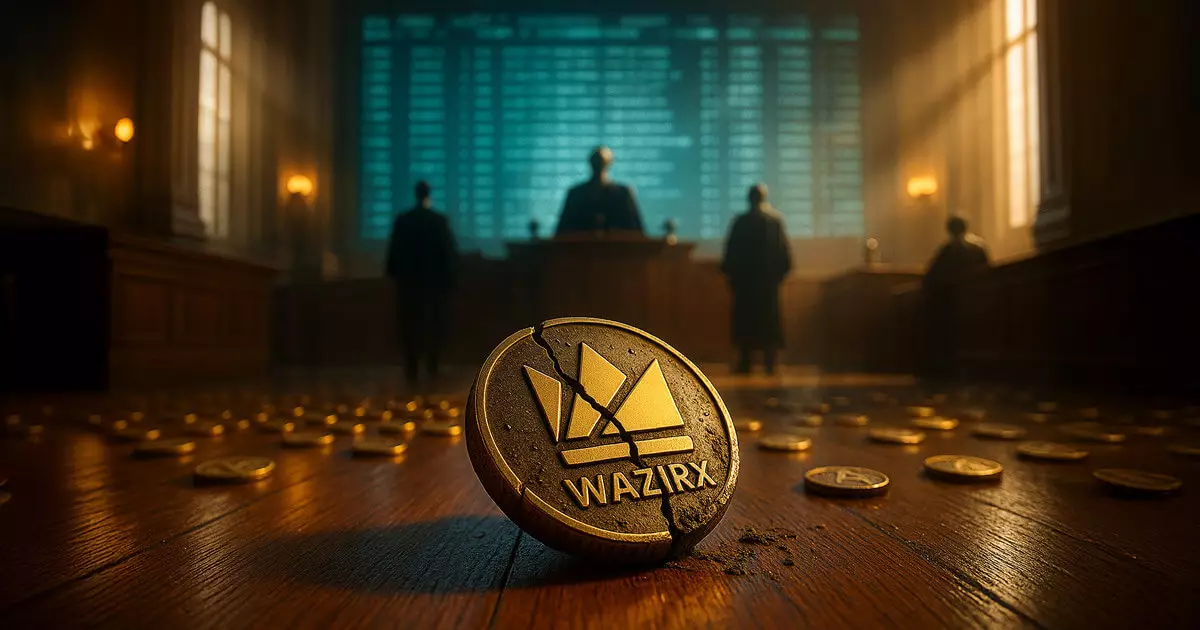The saga surrounding WazirX, a once-thriving crypto exchange, has reached another disheartening chapter after the Singapore High Court decisively rejected its restructuring proposal. The failed plan, aimed at resurrecting the platform after a staggering $230 million hack in July 2024, has left both stakeholders and the crypto community questioning the operational integrity of such exchanges. Despite a reported 93% support from creditors for the plan, the judicial ruling extinguished any hopes for immediate recovery, demonstrating an unsettling disconnect between corporate aspirations and judicial realities.
WazirX expressed its respect for the court’s decision while indicating a commitment to explore other legal avenues, including a potential appeal. This disposition represents an ongoing pattern of denial among crypto exchanges when faced with regulatory challenges. Instead of taking a hard look at structural deficiencies and the inherent risks of operating in a volatile market, WazirX is grasping at straws to regain footing. The question remains: should consumers trust a platform that seems more focused on legal maneuvering than on fundamentally addressing security and ethical concerns?
The Shift to Panama: A Controversial Escape?
The exchange’s decision to relocate its operations to Panama, aided by a rebranding of its parent company from Zettai to Zensui, has not gone unnoticed. In what many perceive as a blatant attempt at regulatory evasion, WazirX joins a troubling trend of companies fleeing to jurisdictions with lax requirements in order to sidestep legal accountability. Market analysts like Sonu Jain suggest the move is a direct response to Singapore’s stringent crypto regulations, indicating an unwillingness to comply with the legal frameworks necessary for responsible operation.
Critics don’t hold back, dubbing this rebranding as mere window dressing aimed at drawing attention away from mismanagement and its legal troubles. Influencer RK Gupta’s assertion that this isn’t about fresh starts but rather a cover-up speaks volumes. This critique resonates uncomfortably, suggesting that WazirX may embody the worst fears of the crypto community: businesses prioritizing profit over integrity.
The Broader Implications for the Crypto Industry
WazirX’s plight highlights a broader crisis in the cryptocurrency market concerning governance and security. The crypto world continues to attract unsophisticated investors tempted by the allure of high returns, but potential risks appear underestimated. The fallout from WazirX’s $230 million hack may ripple through the entire industry, instilling an air of skepticism regarding the competence of crypto exchanges in ensuring user safety.
A critical aspect of crypto governance must include accountability and transparency, traits glaringly missing in exchanges like WazirX. Without stringent regulations that compel entities to operate responsibly, the risk of catastrophic failures will only escalate. The reluctance to adopt protective measures in light of market volatility contradicts the foundational ethos of decentralized finance, which champions self-governance and transparency for all participants.
While WazirX continues to seek a legal workaround, the damaged trust might be irreparable. It serves as a warning to both investors and other exchanges alike: short-term gains and evasive maneuvers cannot insulate businesses from the long-term ramifications of mismanagement and regulatory noncompliance. As the blockchain ecosystem evolves, fostering a culture of operational responsibility is paramount.

